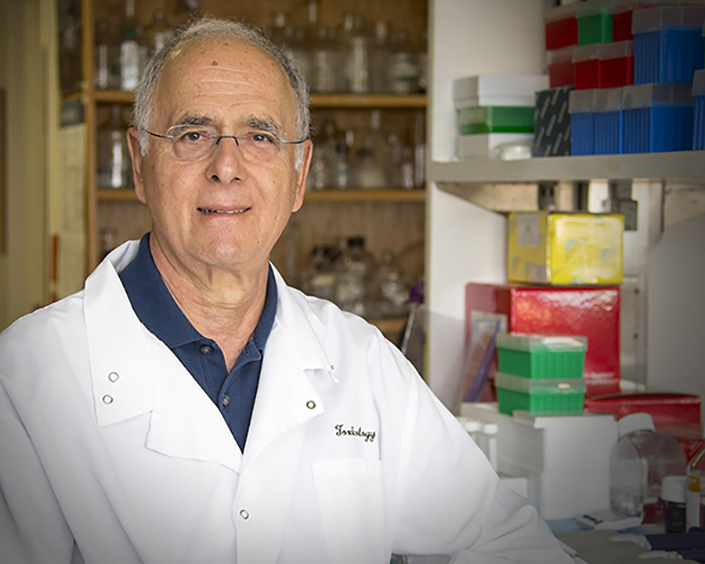C-DIMS offer potential therapeutic treatments for cancer, endometriosis

Stephen Safe, University Distinguished Professor with Texas A&M University’s College of Veterinary Medicine & Biomedical Sciences, has developed a family of pharmaceutical compounds known as C-DIMs, which could become a treatment for a variety of diseases.
Safe’s team has now established a research collaboration and licensing agreement with the Scottsdale, Ariz.-based Systems Oncology to commercially develop a series of pharmaceutical compounds based on the Texas A&M team’s work.
Safe’s lab discovered that their C-DIMs bind and inactivate a set of orphan nuclear receptors, NR4A1 and NR4A2, known to have increased activity in such conditions as breast cancer, glioblastoma, rhabdomyosarcoma, endometrial cancer, and endometriosis.
Because NR4A-nuclear receptors play a significant role in inflammation and cell division, Safe and his team have primarily focused on cancer and endometriosis models, targeting the receptor as a means for treating these diseases.
“This receptor has been identified in several laboratories and is also involved in metabolic disease, arthritis and cardiovascular disease,” Safe said. “It’s really becoming an important drug target.”
The NR4A-family of nuclear receptors have been found to activate many cellular processes related to cancer progression, such as rapid reproduction of malignant cells, inhibiting programmed cell death, and invasion. C-DIMs have the ability to eliminate those processes without affecting normal cells.
“The nuclear orphan receptor NR4A1 seems to be very pro-oncogenic; it makes cells grow and divide and invade, and it has all sorts of cancer-like properties,” Safe said. “Our compounds bind to this receptor and inactivate it, so all the pro-cancerous activity of this receptor in solid tumors is inactivated by our C-DIMs.”
The initial research on the role of C-DIM/NR4A antagonists for treating Rhabdomyosarcoma, a serious pediatric cancer, was funded by the Kleberg Foundation. This has resulted in several publications, including a paper in Cancer Research, a publication from the American Association for Cancer Research.
Before the treatment can be given to humans, C-DIMs must be tested and optimized for a targeted disease, which is where Systems Oncology comes in. Systems Oncology will steer the most promising C-DIMs through the pharmaceutical regulatory process through early stage clinical trials. The company plans to form partnerships with other pharmaceutical companies to enable the clinical use of these C-DIMs.
Additionally, Systems Oncology has made a commitment to sponsor further research and development activities in Safe’s lab over the next three years.

